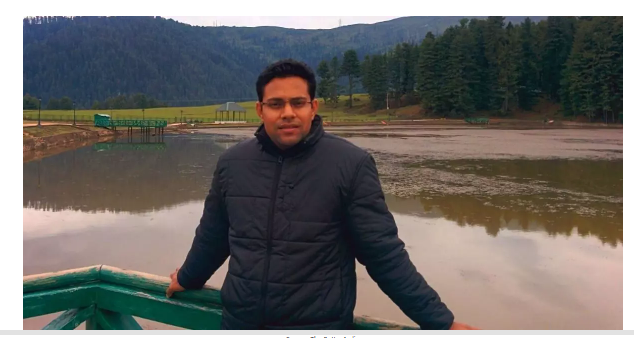Never doubt that a small group of thoughtful committed citizens can change the world; indeed, it’s the only thing that ever has. Margaret Mead The story of Vikas Ujjawal is just straight out of movies. Young, passionate and determined, he has transformed Jharkhand’s Lohardaga Forest Division area and the lives of its people. Vikas Ujjawal a 2016 batch, IFS got Jharkhand’s Lohardaga Forest Division as his first posting. This Naxal affected area once had dense forest cover spread over 5000 hectares with rich biodiversity. Three important rivers of Jharkhand, namely Damodar, Sankh and Auranga originate from here being synonymous to the lifeline.
Because of this region’s political instability, the region had been a hot spot of illegal activities. Cutting down of trees, forest fires, destruction of Sal stumps, has been quite rampant. With a lack of employment opportunities, mafia, and political issues, the villagers were forced to indulge in deforestation practices. Little did they know that the forest cover is the key to their sustenance. Vikas knew that a collective effort, from the government and the local, could only solve the issues. Not wasting any time, this young IFS came up with three-action plans- the restoration of green cover, generation of employment and boosting ecotourism.
The journey wasn’t an easy one. Mistrust and threats from the local and mafia were significant concerns. Still, it did not deter Vikas to pursue his plans. Employment generation for the people was the foremost task. After conducting proper training, they appointed many of the villagers with the forest department. They took beekeeping and bamboo craft up by the local as a source of income. Getting trader and vendors for the finished bamboo craft product has taken it to new heights. The forest department now associates approximately 125 families with beekeeping business.
Several social welfare activities were also taken up under the administration of Mr Ujjawal. With the Joint Forest Management Committees (JFMC) support, Vikas could engage the community in planting new trees. A community-led vigilance resulted in controlling cutting down of trees. By the end of 2017, the area had over 3 lakhs new trees, increasing the forest cover from 30% to 100%, redefining the entire landscape. Afforestation has shown promising result in improving the overall biodiversity water retention, soil conservation, pest control, crop production and revival of the rivers.
The most important task was to revive the ecotourism of Lohardaga. Namodag village has Jharkhand’s second tallest railway bridge, which can be seen from the middle of the pristine forest. The view is breath-taking, and because of ecological beauty, it has now become a popular tourist spot. Started in 2017, the registered count of tourists has been increasing with every passing year. It has crossed 2.5 lakhs since its inception.
The number of visitors has reached as high as 10,000. It’s one of the most sought after tourist spot in Jharkhand and abroad. It has appointed 40 people amongst the villagers as guides. The villagers charge a nominal fee to every tourist. On average, each member earns up to Rs 6,000 every month. Vikas has proved that it is possible to change through the collective effort of a few good Samaritans. All it takes is a will to make a difference.
People of Lohardaga have been thankful for getting Mr Ujjawal as their officer. He has been a people officer and has brought promises of a shining bright future for them- just like his name.

